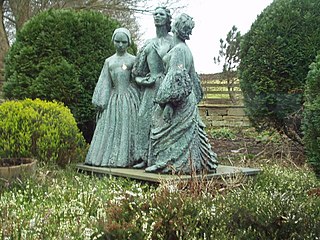Jocelyn Horner
British sculptor From Wikipedia, the free encyclopedia
Jocelyn Horner (1902 – January 1973) was a British sculptor and teacher.
Jocelyn Horner | |
|---|---|
| Born | 1902 |
| Died | 1972 (aged 69–70) Halifax, West Yorkshire |
| Nationality | British |
| Alma mater | Leeds School of Art |
| Known for | Sculpture |
Biography
Summarize
Perspective

Horner was born at Green Hayes in Halifax, West Yorkshire, where she spent most of her life.[1] She attended Halifax High School and Grovelly Manor in Bournemouth.[1] In 1920 she enrolled at the Leeds School of Art to train as a sculptor and was a student alongside both Barbara Hepworth and Henry Moore.[2][3] While still a student she began a series of animal studies and children's portraits.[2] During World War II she worked as a home teacher for blind people in Halifax and also served as a Red Cross nurse.[1] When the War ended she returned to Leeds as a student and in the early 1950s took a number of part-time teaching posts. Horner taught modelling and wood carving at Percival Whitley College and also taught at Halifax Art College.[2]
In the 1960s Horner's work, which was greatly influenced by that of Jacob Epstein was exhibited both locally in Yorkshire and at national venues.[2] She won the Leeds Gold Medal for Yorkshire artists in 1951 and had a number of high-profile commissions.[2] These included a bronze group sculpture of the three Brontë sisters for the Bronte Parsonage Museum and a bust and hands sculpture of Sir John Barbirolli for the Hallé Concert Society in Manchester.[2][3] Her Head of a Blind Man is held at the London Headquarters of the Royal National Institute of Blind People.[2]
Leeds City Art Gallery holds examples of her work and a memorial show was held at the Stable Court Galleries at Temple Newsam near Leeds.[3] In 2013 a Blue Plaque was unveiled on the house in Green Hayes where Horner was born and died.[1]
References
External links
Wikiwand - on
Seamless Wikipedia browsing. On steroids.